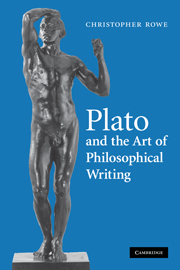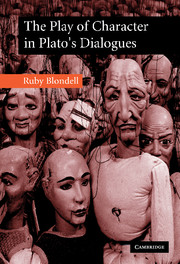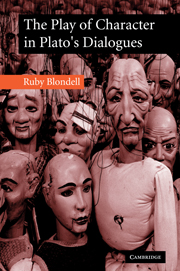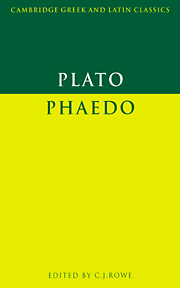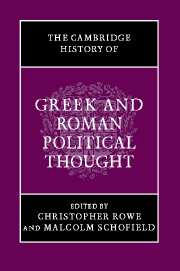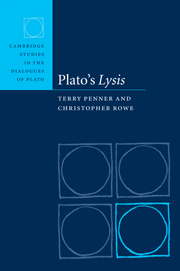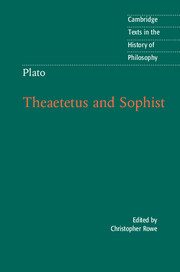Plato and the Art of Philosophical Writing
Plato's dialogues are usually understood as simple examples of philosophy in action. In this book Professor Rowe treats them rather as literary-philosophical artefacts, shaped by Plato's desire to persuade his readers to exchange their view of life and the universe for a different view which, from their present perspective, they will barely begin to comprehend. What emerges is a radically new Plato: a Socratic throughout, who even in the late dialogues is still essentially the Plato (and the Socrates) of the Apology and the so-called 'Socratic' dialogues. This book aims to understand Plato both as a philosopher and as a writer, on the assumption that neither of these aspects of the dialogues can be understood without the other. The argument of the book is closely based in Plato's text, but should be accessible to any serious reader of Plato, whether professional philosopher, classicist, or student.
- Radical reassessment of Plato by a senior scholar
- Integrates literary and philosophical approaches
- Demonstrates hitherto unnoticed continuity between the earlier and the late dialogues
Reviews & endorsements
"Rowe...displays an impressive grasp of a wide rage of literature. ...His book offers a penetrating analysis... ." --BMCR
"Plato and the Art of Philosophical Writing is an engaging and well-argued book that focuses on both Socratic epistemology and the nature of Platonic argument." --Ancient Philosophy
Product details
February 2010Paperback
9780521131261
304 pages
229 × 152 × 17 mm
0.45kg
Available
Table of Contents
- Preliminaries: reading Plato
- The dialogues
- Introduction: The simile of the cave in the Republic
- 1. The Apology: Socrates' defence, Plato's manifesto
- 2. The Phaedo: Socrates' defence continued
- 3. 'Examining myself and others', I: knowledge and soul in Charmides, First Alcibiades, Meno, Republic, Euthyphro, Phaedrus
- 4. The moral psychology of the Gorgias
- 5. 'Examining myself and others', II: soul, the excellences and the 'longer road' in the Republic
- Interlude: a schedule of the genuine dialogues
- 6. Knowledge and the philosopher-rulers of the Republic, I: knowledge and belief in Book V
- 7. Knowledge and the philosopher-rulers of the Republic, II: the limits of knowledge
- 8. The Theaetetus, and the preferred Socratic-Platonic account of knowledge
- 9. The form of the good and the good: the Republic in conversation with other dialogues
- 10. Republic and Timaeus: the status of Timaeus' account of the physical universe
- 11. Plato on the art of writing and speaking (logoi): the Phaedrus
- Epilogue: What is Platonism?

